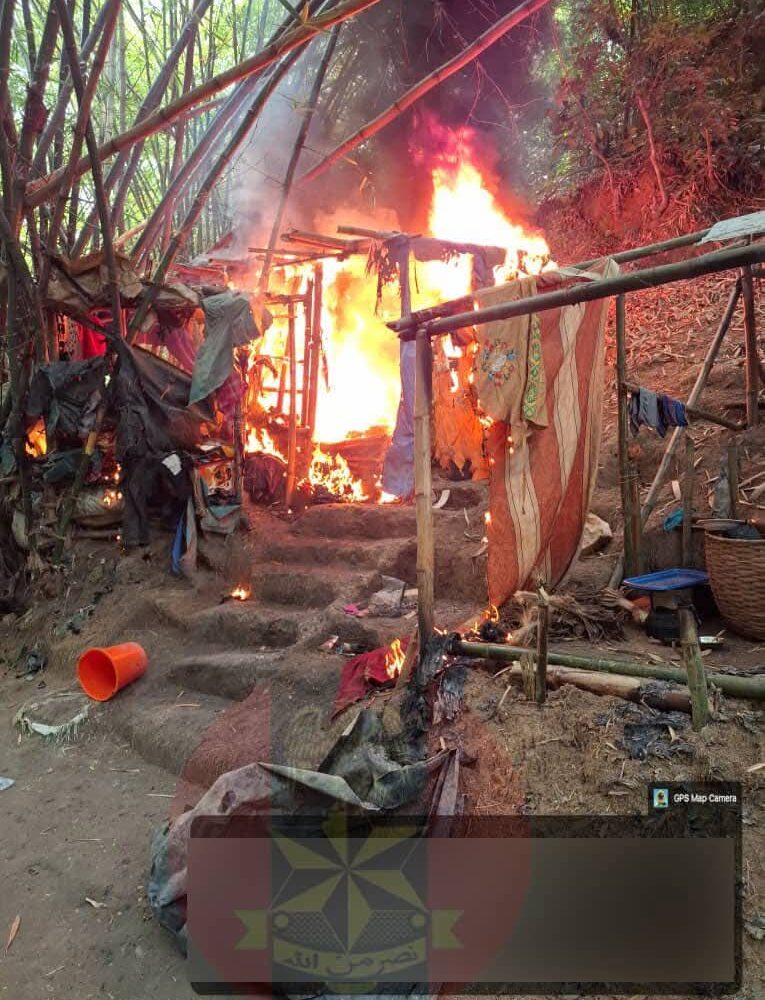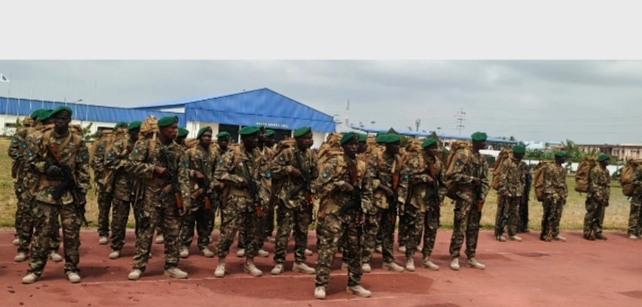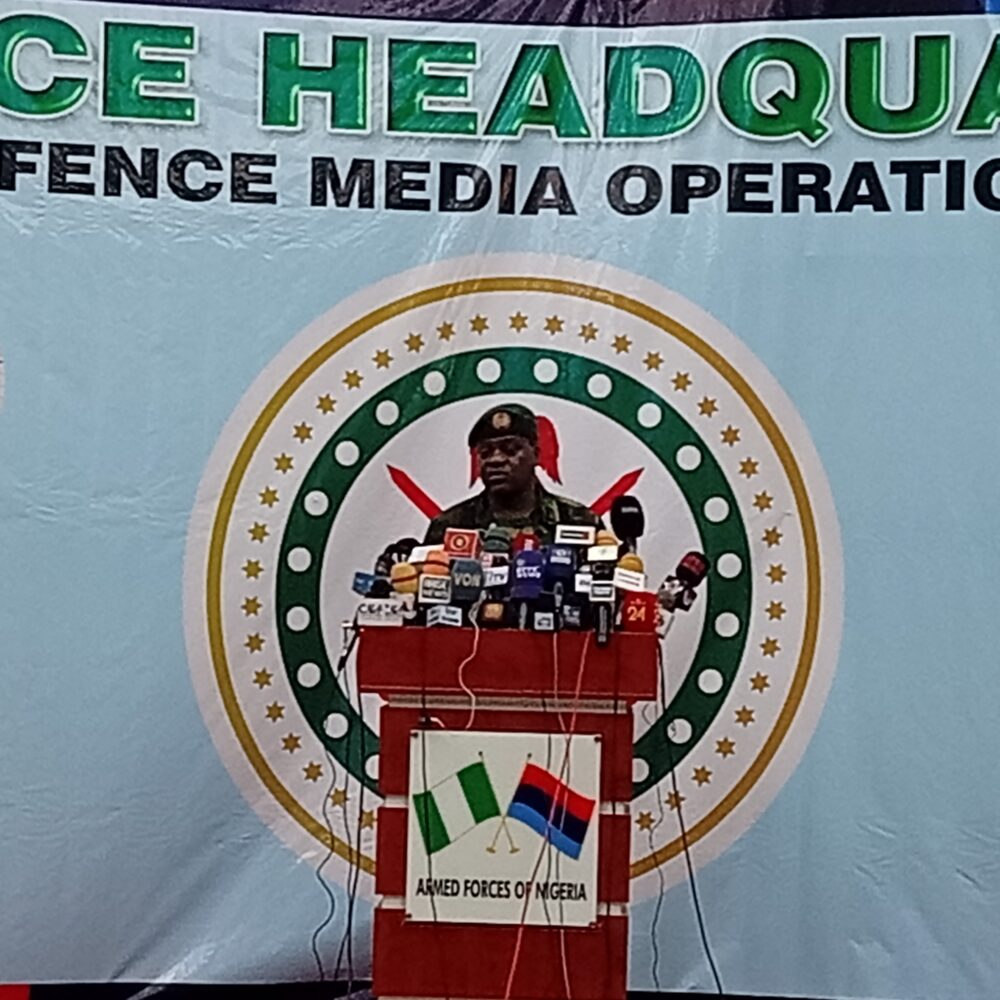Though, not its statutory responsibility, the Nigerian military, has since been drafted to assist the Nigerian Police, and its sister security agencies, tackle internal unrests.
The military has, in recent times, deployed effective strategies to tackle violent crimes in the country. It has launched combat operations, and military exercises to checkmate activities of Boko Haram, and the Islamic State of West Africa Province (ISWAP) fighters in the North East, for over a decade now.
Its gallant troops are everywhere across the six geo-political zones fighting pirates, armed bandits, kidnappers, robbers, and militia groups, among others criminal elements.
Nurturing a benefical civil-military relationship in crisis-ravaged and other troubled communities and towns is another portent strategy the Nigerian military is deploying to foster peace, and security, in the country.
However, the leadership of the Nigerian Armed Forces, wants the media, a key stakeholder in the project of national development, to carry out more than its watchdog function for the society.
The Chief of Defence Staff (CDS), General Lucky Irabor, is calling on journalists covering the defence beat to align themselves with the media campaign strategies of the Armed Forces of Nigeria (AFN).
This, he said, is necessary to win the hearts and minds of the populace, for the Nigerian troops in various operational theatres.
The CDS stated these in Abuja, while declaring open a ‘One-Day Workshop for Defence Correspondents’. The workshop was organised by the Defence Headquarters (DHQ), in partnership with The Media Today (TMT) International.
The workshop themed, “The Role of Defence Correspondents in Enhancing National Security: Imperatives of Conflict Sensitive Communication,” was hosted to broaden the knowledge of Defence Correspondents in understanding nitty-gritty of conflict sensitive communication towards conflict resolutions.
The lead paper titled, “The Role of Defence Correspondents in Enhancing National Security: Imperative of Conflict Sensitive Communication” was delivered by Prof. Abiodun Adeniyi, Head of Mass Communication Department, Baze University, Abuja.
Commander AB Ayi, delivered the second paper on the ‘Overview of Military Terminologies’.
While the Defence Editor, Blueprint Newspaper, Mr. Jibrin Ndace and Dr. Theophilus Abbah, former Editor Sunday Trust, delivered the third and fourth papers on the Challenges of a Defence Correspondent and The Journalist Code of Ethics, Conflict of Interest and National Security.
The moderators during the interactive sessions were: former Director Defence Information (DDI) Major General Chris Olukolade (rtd) and Mr. Dayo Ayetan.
The panelists included: DDI Maj Gen Benjamin Olufemi Sawyerr, Dr Okey Ikechukwu, Mr Gbenga Aruleba, Mr Yushau Shuaib and Mr Ben Okezie.
Gen Irabor, who was represented by the Chief of Defence Administration, Rear Admiral Abdul Adamu, also enjoined journalists to use their media platforms and reportage to galvanize citizens support in the promotion of national unity and peaceful coexistence.
The Defence Chief, described conflict sensitive information management as a critical element in national development.
He noted that the manner in which conflict sensitive information is being processed and disseminated to the public could positively or negatively affect national security.
He further explained that the capacity-building training will facilitate needed discourse towards identifying viable media approach and collaboration which would support kinetic efforts of the AFN in combating present and emerging threats.
He assured the media that DHQ would continue to partner with them in order to build a peaceful, harmonious and prosperous nation.
The Deputy Director Defence Information (DDDI), Air Commodore Wap Maigida, in his remarks, said the complex nature of asymmetric warfare fought by the Nigerian military involves interplay of factors and actors which the media is inclusive.
The DDDI, urged the media to carry out coherent activities with the military in order to achieve more feats in the theatres of operation.
According to Air Cdre Maigida, unpatriotic and negative reportage by the media over the years, have continued to distort military operations against insurgency, terrorism and more recently banditry.
Meanwhile, Chief Executive Officer (CEO), TMT International, Barr. Charles Odenigbo, on his part, urged media organizations and institutions to dwell more on investigative reporting to expose activities of terrorists..
The CEO, also enjoined journalists to continue to perform their duties in line with code of ethics guiding the profession, including fairness, objectivity and balance reportage.
According to Odenigbo, the code of ethics for Nigerian journalists emplaced that journalism should entails a high degree of public trust which must be earn by observing highest professional and ethical standard.
The Nigerian media, like the military and every other corporate and national institutions, desires a safe, peaceful and secured Nigeria. The professionals in its industry are doing everything possible to assist the military win the battle against insecurity.
But by adhering to the tenets and basic principles of conflict communication, defence correspondents, in particular, will definitely be helping the military rid the country of crimes, and in the long run, enhance national security.
Mahmud Abdulsalam is an Assistant Editor with PRNigeria





